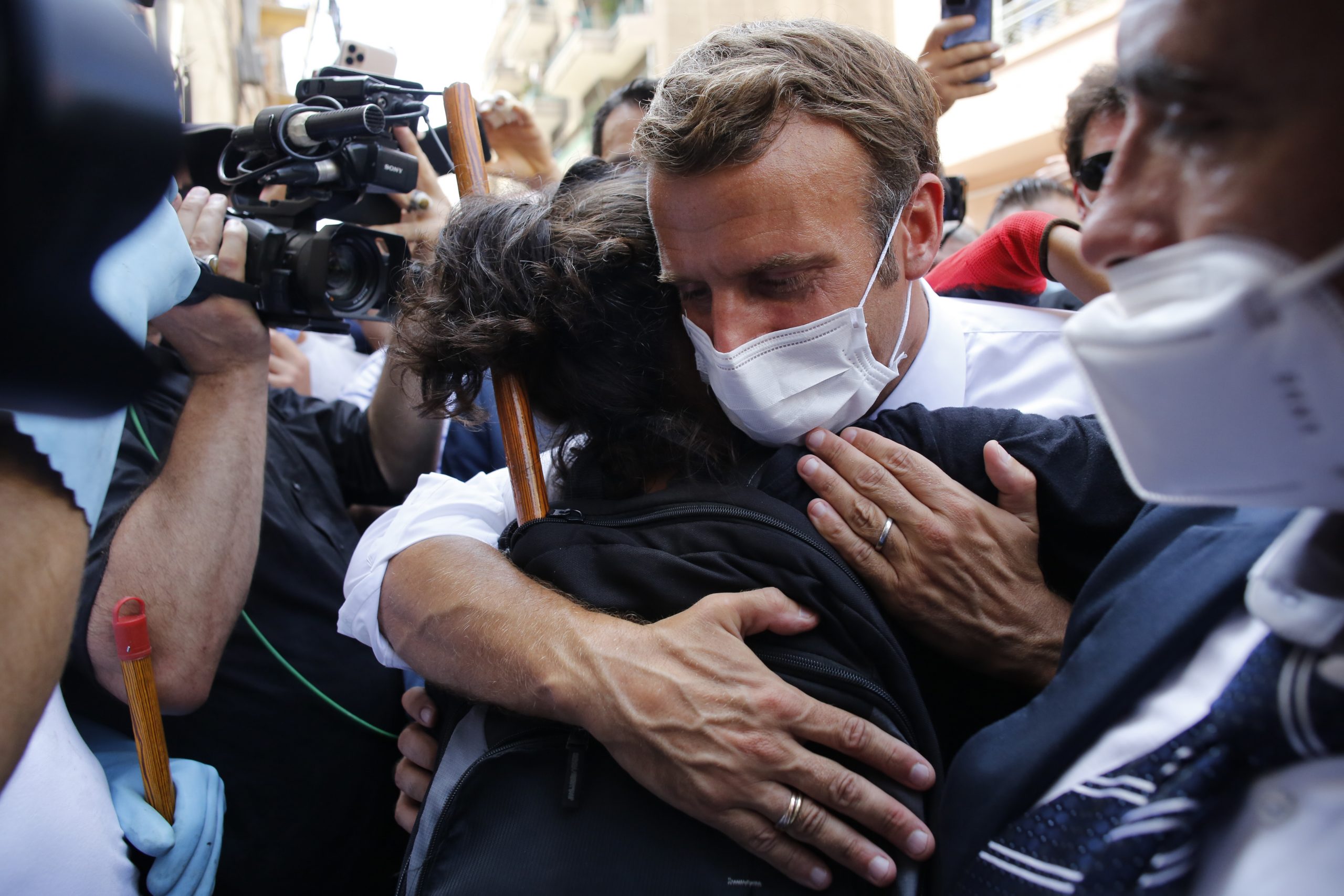French President Emmanuel Macron warned Iranian President Hassan Rouhani not to interfere in Lebanon’s affairs following the explosion that killed more than 170 people.
Macron issued the warning during a phone call with Rouhani, where he highlighted the “necessity for all the powers concerned … to avoid any outside interference and to support the putting in place of a government which can manage the emergency,” according to Agence France-Presse.
The French leader has taken an outsize role within the international community in assisting Lebanon’s recovery from the devastating explosion. Macron, who was the first foreign leader to visit the country after the blast, recently chaired a virtual aid conference that brought in nearly $300 million in pledged funds to help Beirut.

Macron’s remarks come after Lebanese Prime Minister Hassan Diab announced on Monday that he and his entire Cabinet were resigning in the wake of the catastrophe. Despite the resignations, protests have continued in Lebanon with demonstrators expressing anger over government mismanagement and lack of accountability. The country’s anger is also compounded by an economic crisis that began prior to this month’s explosion.
Iran is inexorably tied to Hezbollah, a group designated as a terrorist organization by the United States and European countries, that operates as a political entity within the country. Hezbollah leader Hassan Nasrallah has denied any involvement in the blast, which appears to have occurred as a result of some 3,750 metric tons of ammonium nitrate that was improperly stored at the Port of Beirut for years despite apparent concerns among port officials.
“I would like to absolutely, categorically rule out anything belonging to us at the port. No weapons, no missiles, or bombs or rifles or even a bullet or ammonium nitrate,” Nasrallah said shortly after the blast.
The explosion itself devastated Beirut, once known as the Paris of the Middle East, and left between 250,000 and 300,000 people homeless. Experts have speculated that the power of the blast was 10% of the intensity of the atomic bomb that the U.S. dropped on Hiroshima. In addition to the dead and missing, thousands of people were injured during the explosion.

